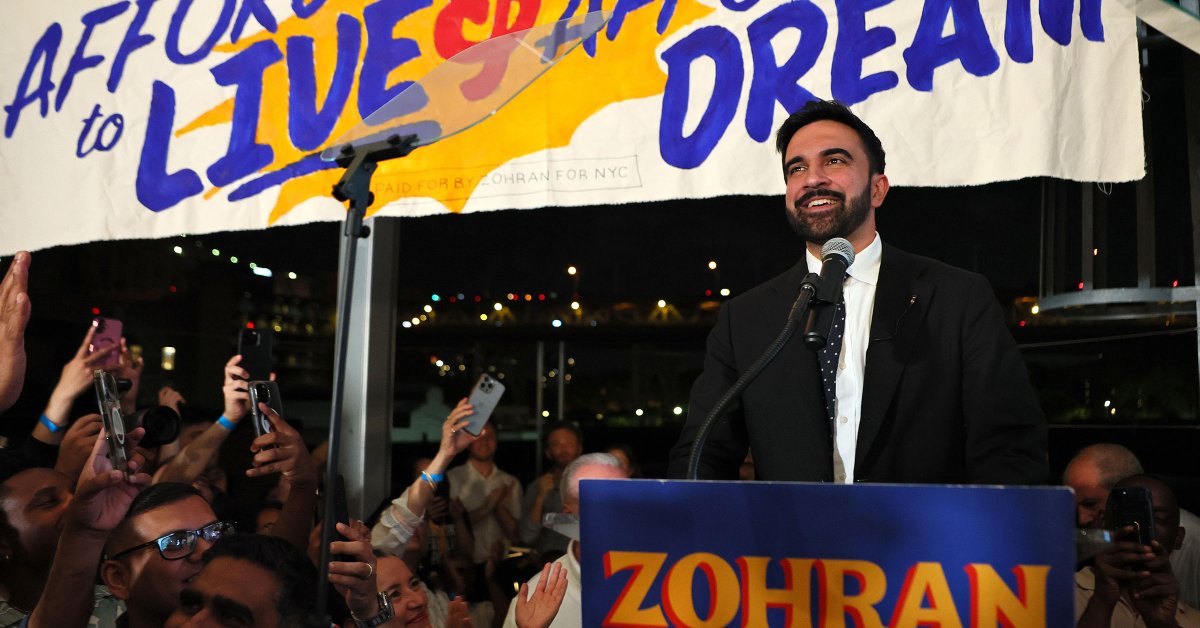The sweeping victory of the charismatic Zohran Mamdani in the Democratic New York mayoral election has the business community alarmed, if not downright distressed. Immediately after the election, many New York CEOs and financiers predicted an accelerated flight of capital to lower tax states like Texas and Florida.
Mamdani’s victory fits the emerging pattern of angry and fed-up voters from across the spectrum, as some notable anti-establishment populists have swept to victory in the US and across the globe on both the left and the right. But the prospect of the capital of capitalism going socialist poses a challenge for those who want to see New York City prosper.
Mamdani’s economic proposals do not match the real challenges of today. He has proposed building a network of city-run, subsidized grocery stores to drive food prices down, bragging that he drew inspiration from none other than Donald Trump. Mamdani, blames grocery stores for running up food costs when in reality, grocery stores are some of the lowest-margin businesses around, with 1-2% profit margins in good times.
In fact, our we ran analysis of the 2014-2023 fiscal year revenues and profits for Fortune 100 companies has found little evidence of corporate price gouging or profiteering. On the contrary, the research indicates that large corporations responded to consumer needs by limiting price hikes and launching value products and discount programs. Those actions have become evident in the current inflation rate, which is nearly in line with the Federal Reserve’s 2% target.
Mamdani has made “freeze the rent” a rallying cry, even though that would backfire, as rent caps would disincentivize developers to build new housing supply at a time when more housing is desperately needed. He has also proposed nationalizing all utility companies, arguing that private companies are inherently incapable of addressing climate change, which even fellow green environmentalists oppose.
The Democratic nominee estimates his agenda will cost taxpayers $10 billion annually. His solution for financing the hefty price tag is to increase taxes on big corporations and the wealthy. Never mind the questionable math used by the campaign to raise the $10 billion in municipal tax revenues, any tax increase – even at the local level – must be approved by the state assembly.
While checks and balances may be established for tax policies, Mamdani has other levers that could damage the local economy if misused. Adjustments to land use and zoning laws, licensing and permitting processes, and environmental restrictions could be used by the would-be mayor to disadvantage major business leaders, real estate developers, successful entrepreneurs, and wealthy investors, among others, all of whom significantly contribute to New York City’s economic vitality.
Mamdani makes no defense of his lack of experience. His peak responsibility has been managing a staff of five as state assemblyman. His inability to build a record of achievement there has been described by many, including the New York Times opinion page which warned earlier this month, “We do not believe that Mr. Mamdani deserves a spot on New Yorkers’ ballots.”
Mamdani’s socialist taunts of big business are misguided. When big companies leave New York City do to rising costs to operate here, Mamdani’s constituents are the true victims. Already, by last year, JP Morgan Chase, which was founded in New York City more than 200 years ago and has 24,000 employees still in New York today, has started moving workers out of New York by the thousands. Texas has now already surpassed New York as the largest base of its workers with 30,000 employees there, and with another 15,000 based in Miami. Other pillars of New York’s financial community such as Goldman Sachs and Citigroup have similarly been relocating workers thousands of miles away from Wall Street. In earlier years, such global beacons of American capitalism and major employers of choice, from American Airlines and AT&T to Exxon and International Paper fled their historic New York homes for Texas. The loss of such businesses takes away jobs and the vital tax base needed to support infrastructure, social services, as well as educational and cultural institutions, while eroding economic development.
The villainizing of business is regressive, not progressive. History has repeatedly shown that socialism doesn’t work, as ideas that seem good in theory often turn into a mess of government bureaucracy, inefficiency, and inertia, setting society and living standards back instead of moving them forward. Capitalism is truly progressive, as capitalism has been directly responsible for the massive leaps in quality of life and prosperity, feeding the dynamic wellspring of innovation and creative destruction which underlies genuine and societal progress. Our hope is that New Yorkers will continue to keep this dynamic city the capital of capitalism.








